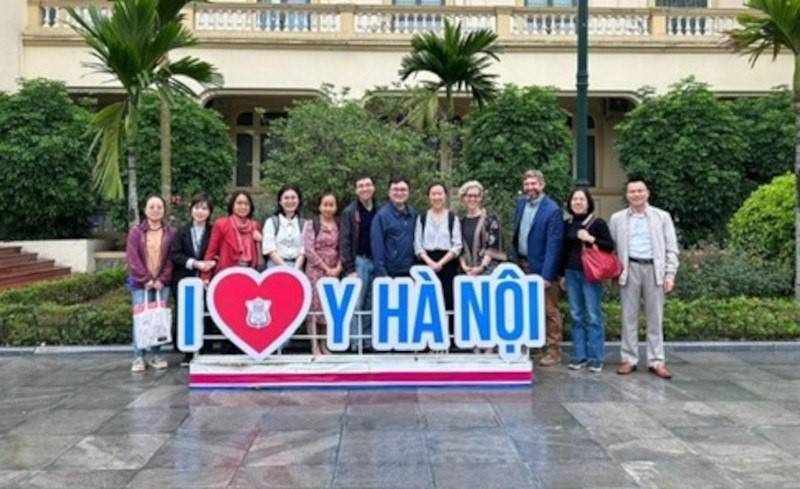In March 2024, the Duke Center for AIDS Research’s Social & Behavioral Sciences (SBS) Core and Quantitative Sciences (QS) Core, in collaboration with the Clinical Core, organized two workshops held at the Tropical Medicine Research Center for Talaromycosis at Pham Ngoc Thach University of Medicine in Ho Chi Minh City, Vietnam. Each workshop provided training for 30-45 Vietnamese post-graduate trainees in health sciences from surrounding medical universities and affiliated hospitals across Vietnam.
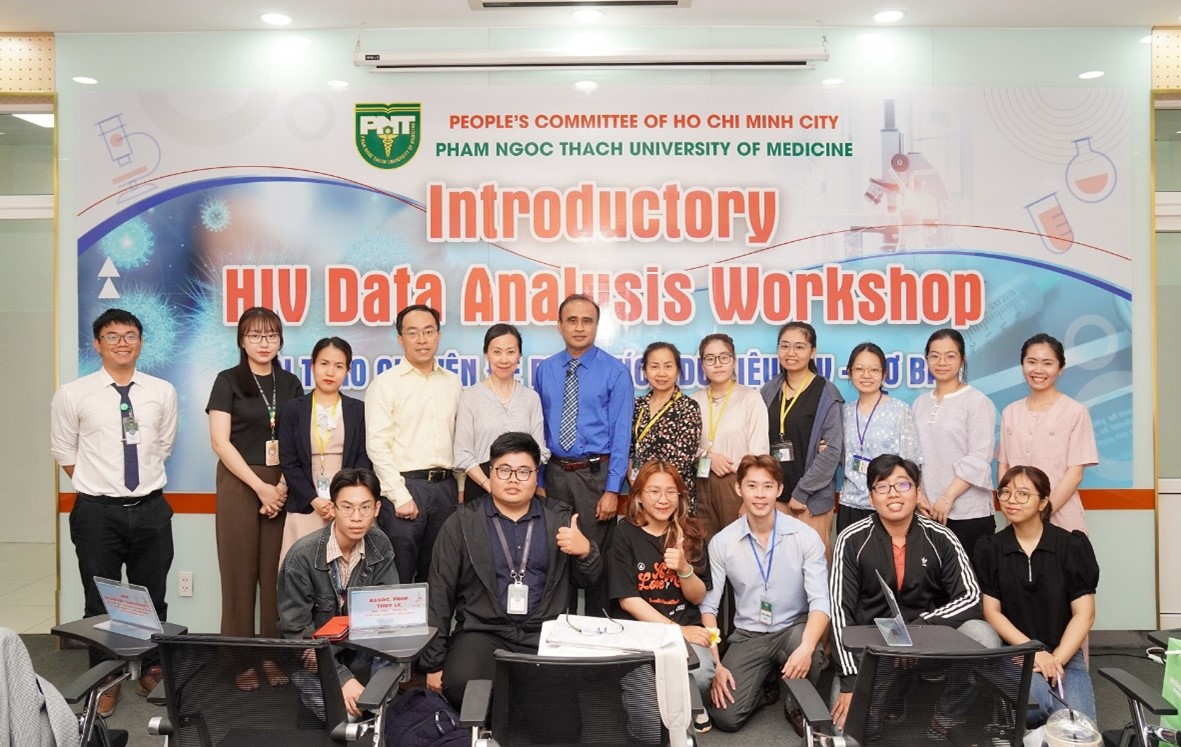
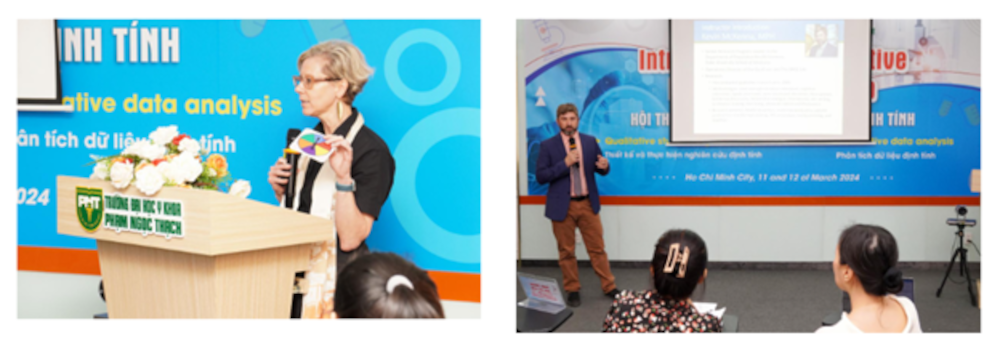
The two-day Qualitative Sciences Workshop, led by Dr. Amy Corneli and Mr. Kevin McKenna, focused on the principles and methods of qualitative research. Attendees learned how to design, conduct, and analyze qualitative data from in-depth interviews and focus group discussions through the use of concrete examples. Dr. Corneli also provided guidance to a Vietnamese PhD student in developing the qualitative research aim for her PhD proposal, focusing on improving the quality of life and outcomes of patients with advanced HIV disease during the critical time period after hospital discharge from an acute AIDS-related illness.
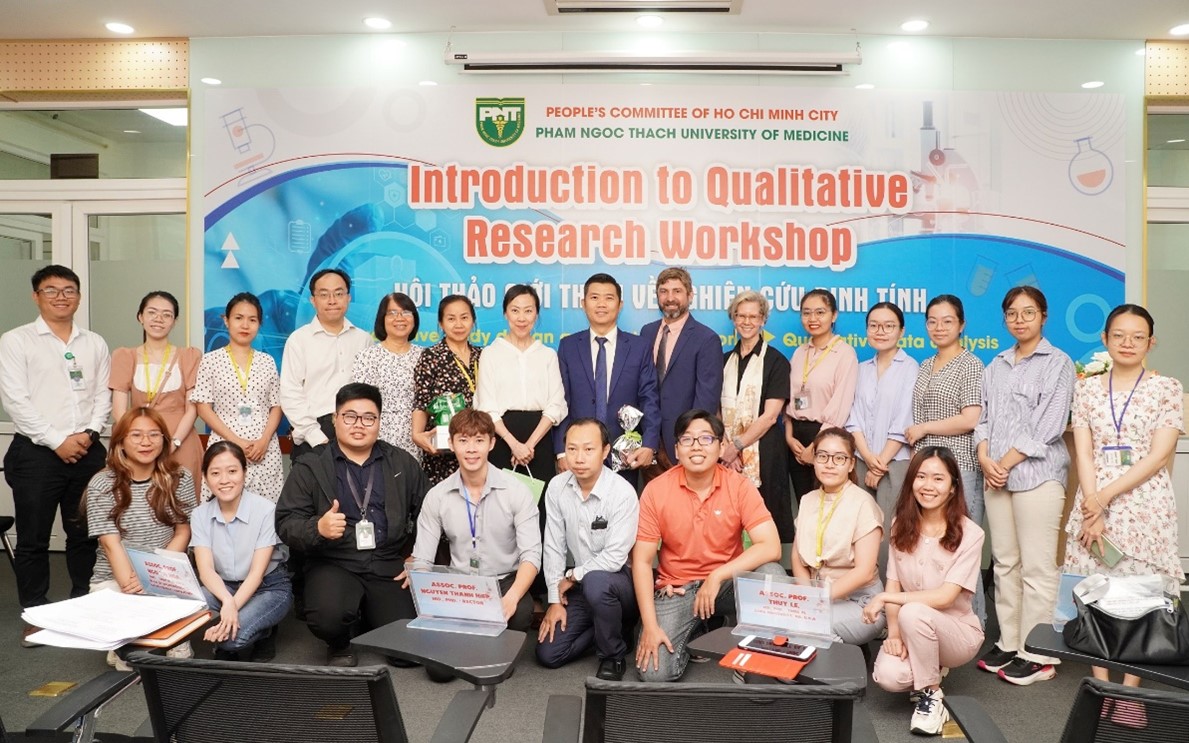
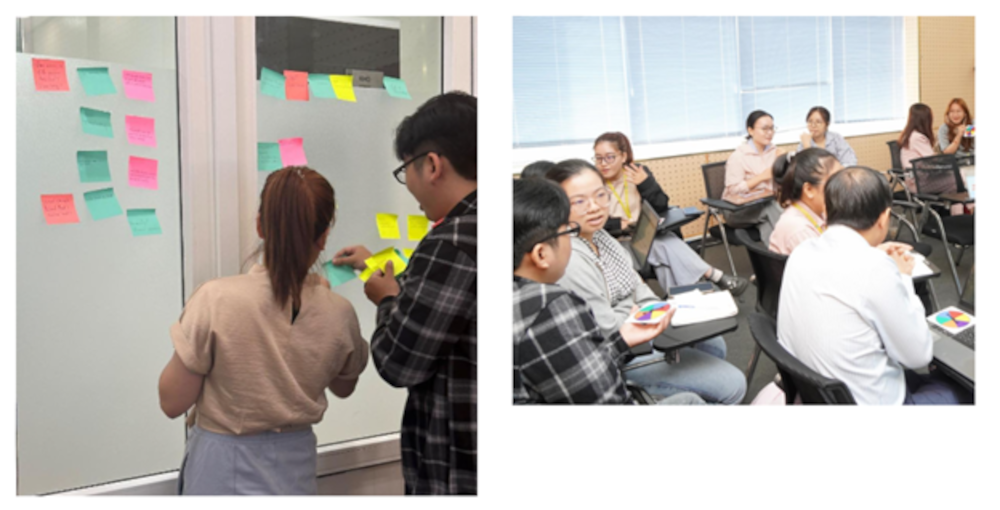
The two-day Biostatistics Workshop, led by Dr. Rishi Chakraborty, covered fundamental principles of medical research, biostatistics, statistical testing, inference, and common biostatistical concepts. Dr. Chakraborty employed a combination of didactic teaching and practical exercises to address real statistical challenges faced by the Vietnamese researchers.
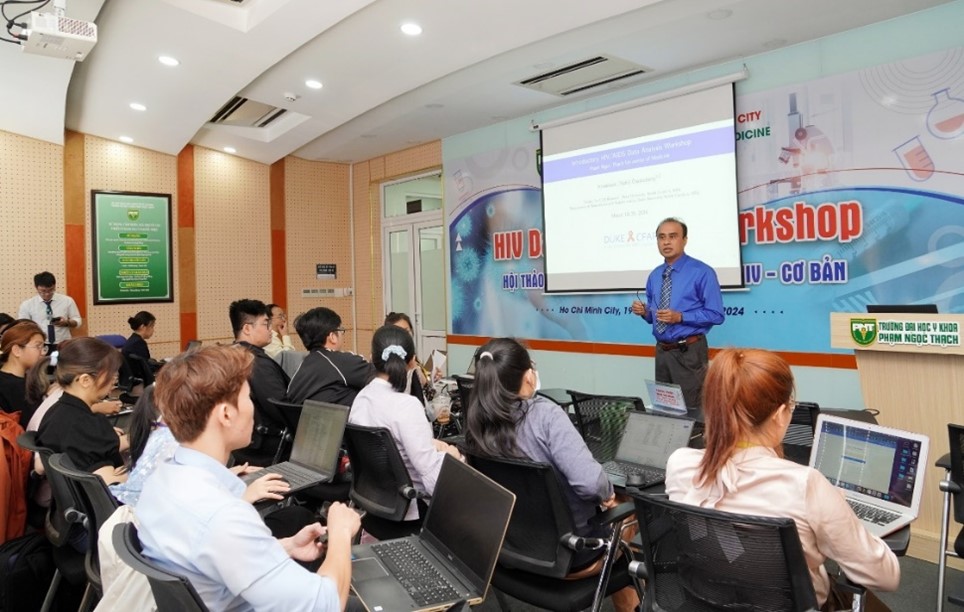
Dr. Thuy Le reflected on the trip: “Following the workshops, Dr. Corneli and Mr. McKenna accompanied our research team to visit Hanoi Medical University, a historic institution dating back 1,000 years. We met with leaders of the Vietnam HIV/AIDS Control of the Vietnam Ministry of Health and HIV doctors and thought leaders of HIV organizations and presented our research results (presented at CROI, March 2024) showing a remarkable 54% prevalence of TB and invasive mycoses and a collective mortality of 30% in hospitalized patients with advanced HIV disease. We discussed updating the National HIV Treatment Guidelines to include screening for talaromycosis and histoplasmosis in patients with advanced HIV disease in Vietnam. Beyond capacity development and policy engagement, we built connections traveling together whilst eating fabulous Vietnamese foods.”
These workshops exemplify the Duke CFAR’s interdisciplinary strengths and commitment to international partnerships and capacity strengthening in the field of HIV research. These efforts contribute to building sustainable research capacity and fostering long-term collaborations to advance global health equity and address critical issues in HIV care and treatment.
